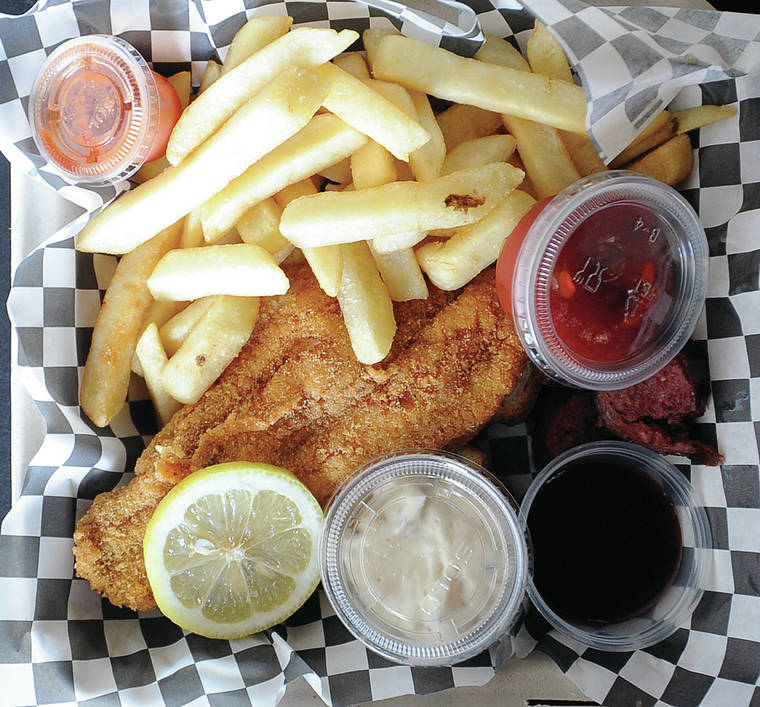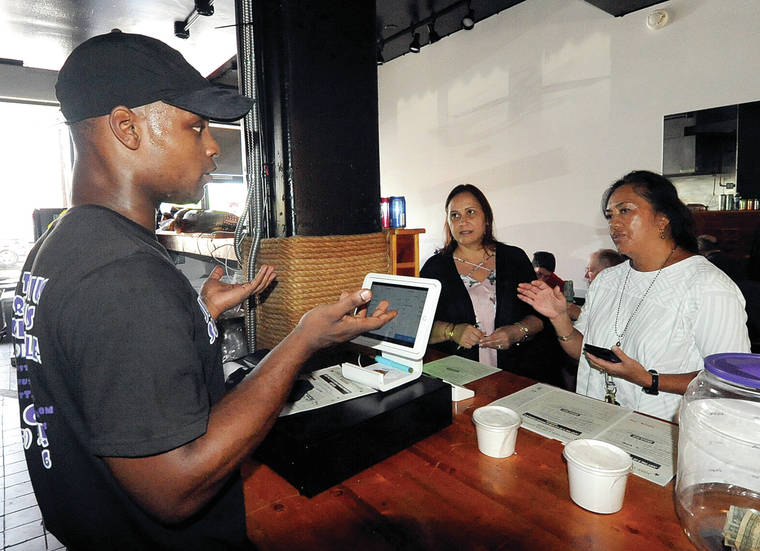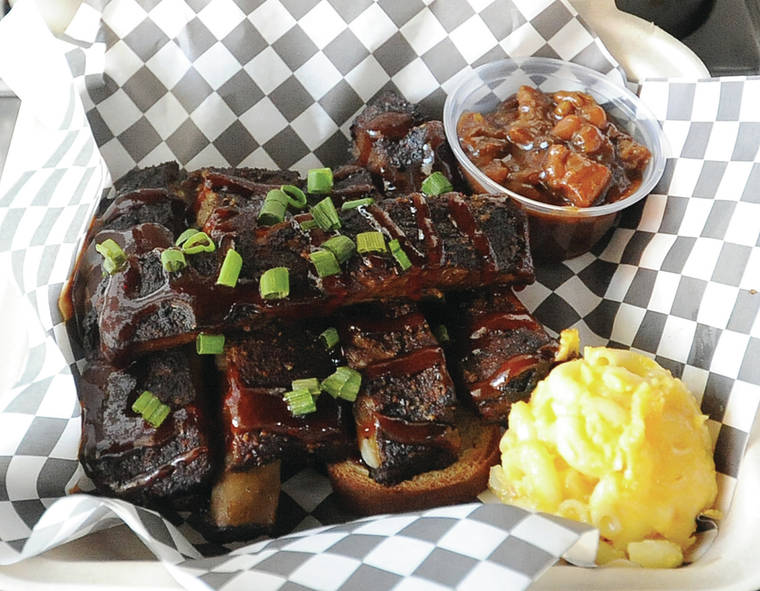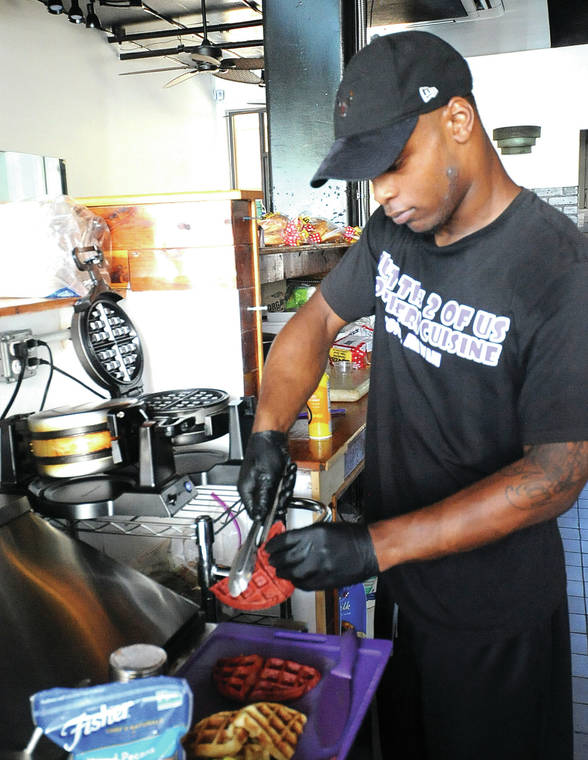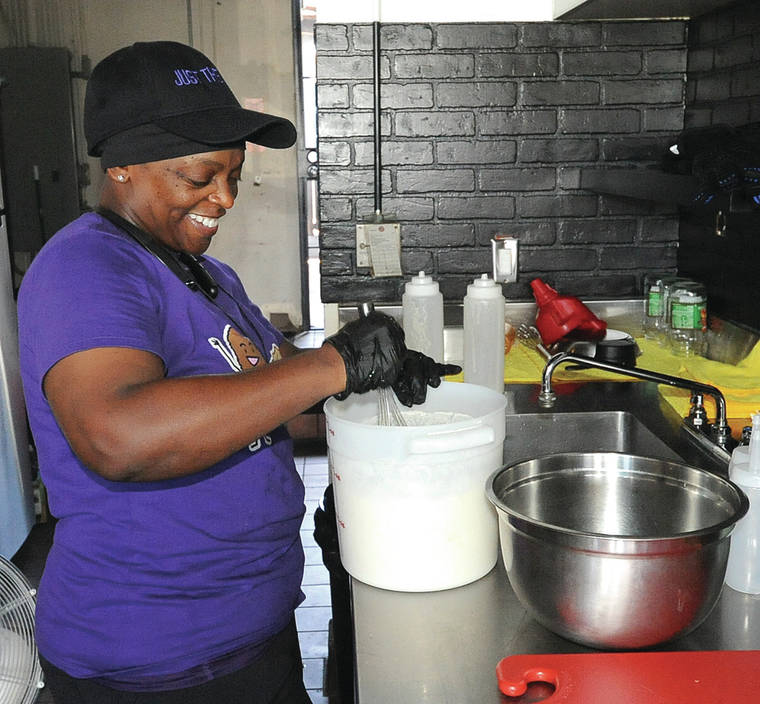Hawaii entrepreneurs face challenges in starting businesses, but work to make it happen






KAILUA-KONA — Opening a business anywhere can be a struggle, but opening one in Hawaii — regularly ranked among the worst states in the U.S. in which to start a business — comes with its own set of challenges.
Last month, personal-finance website WalletHub ranked the Aloha State the fourth worst for new business ventures, above only New Hampshire, New Jersey and Rhode Island.
But despite the challenges, local businesses do what they can to thrive, and business advocates say the environment in this county seems to be moving in a positive direction.
For those in the business of helping businesses, the fact that the ranking was so low wasn’t much of a shock.
“I’m surprised we’re 47th and not worse,” said Dennis Boyd, director of the West Hawaii Small Business Development Center. “No, it’s not surprising at all. We hear it all the time, every survey published about any of these business characteristics, you’ll always see Hawaii down at the bottom.”
In ranking the states, WalletHub looked at 26 metrics across three dimensions: the business environment, business costs and access to resources.
This year’s ranking was more favorable than last year, when Hawaii came in absolute last in WalletHub’s ranking. Before that in both 2017 and 2016, CNBC ranked Hawaii second-worst for business.
Some factors weighing against Hawaii are less matters of policy and more the reality of doing business in the islands, such as the state’s geography. That geography, Boyd pointed out, means it takes longer to get things here, and it costs more.
Boyd said one could consider the potential advantages Hawaii’s place in the Pacific carries, such as access to Asia markets, although he said making such a pivot would itself involve a paradigm shift in the state as a business environment.
And aspiring entrepreneurs, he said, don’t always anticipate the hurdles it can take to get from business plan to grand opening.
“Some people come in with quite the contrary expectation and they think they’re just going to get started similarly to what they’ve done in the past in the mainland,” Boyd said. “And they’re smacked right up against the face with the reality of life here. And it just takes an awful lot longer to get a project off the ground.”
Wendy Laros, the executive director of the Kona-Kohala Chamber of Commerce emphasized the subjective nature of such rankings, and pointed to the factors affecting why people live here, such as quality-of-life. Incidentally, in 2017, when CNBC ranked Hawaii second-to-last in states in which to start a business, this state topped the quality-of-life ranking.
“And so people live here, and they’ll open a business and do what they can to make it work and work hard to make it work,” Laros said.
Indeed many residents are doing exactly that: Turning their business plans into realities and working to get their ventures off the ground.
“I wouldn’t say it was hard, it was just a little frustrating at times just trying to get people to move fast,” said LaJuan Tarrance, who owns Just the 2 of Us Southern Cuisine and BBQ with his wife, Mary Tarrance.
“So it’s not really hard,” Mary Tarrance added. “You just need patience basically.”
The Tarrances started their business in April 2016 with a tent at Dixson 76 in Kailua-Kona before moving to Old Kona Airport Park, where the county for a little over a year hosted “Kona Street Eatz” to accommodate mobile food vendors.
They later had a food trailer before they opened their new storefront earlier this month at Alii Plaza off Hualalai Road.
Getting to that point wasn’t without its challenges, and the Tarrances said the best thing agencies can do to make things easier is just to move faster.
When they were trying to open a business account, for example, they needed to amend some paperwork filed with the state to reflect that their business was a partnership. That change, they said, took almost a month to process.
Mary Tarrance also emphasized how critical it is that agencies be accessible online and accept electronic payments.
Earlier this year, the County Council approved a three-year software license that includes an online platform where people can access and create applications. That’s expected to be rolled out this year.
That platform is also aimed at speeding up the building permit process, which is another persistent headache for new businesses statewide.
In a 2016 article, Hawaii Business reported that of more than two dozen cities, Honolulu led the pack at how long it takes to get all of a building’s permits and approvals with an average of 17.23 months. The runner-up, Ventura, California, clocked just under 15 months.
The Tarrances said making their way through permitting and planning wasn’t a straightforward process for them either, although the way they scaled their business up from a tent made things a little easier on them as they were able to gain experience in dealing with the various agencies along the road to opening up the storefront.
“If we would have just seen this space and said, ‘OK we’re going to open a restaurant,’ it wouldn’t be open,” said LaJuan Tarrance. “But I think because we knew some of the processes already from starting from scratch with the tent, to the trailer and now to the storefront, I think that part made it easier.”
The struggle business owners can face in the permitting process is one that has the Kona-Kohala Chamber of Commerce’s attention, which formed a permitting task force, chaired by Boyd,with the goal of supporting improvements and efficiency in the permitting process.
“And the county recognizes that there’s a need to improve, and they are actively working on it,” said Laros.
That includes a checklist to help users navigate the process as well as a one-permit system using the platform the council approved earlier this year.
“So the county’s really responding,” she said. “I mean, they are working actively right now to roll out this new system.”
In addition to its work with the permitting task force, Laros said the Chamber of Commerce, as part of its Future Focus Initiative, has been talking to community entrepreneurs about a number of issues regarding the local business climate, including what they believe to be the most significant challenge that needs to be tackled to cultivate a thriving economy and business environment on the island.
“We’re definitely asking,” Laros said, adding they hope to be able to have some preliminary data on the responses they’ve received around September.
And for entrepreneurs who have undertaken the task of getting off the ground, it’s been well worth the effort.
“Because anything worth having, it’s going to be hard work,” said Mary Tarrance. “It’s not going to be easy, and if it’s easy then don’t do it. … Anything worth having, you have to work for it.”


